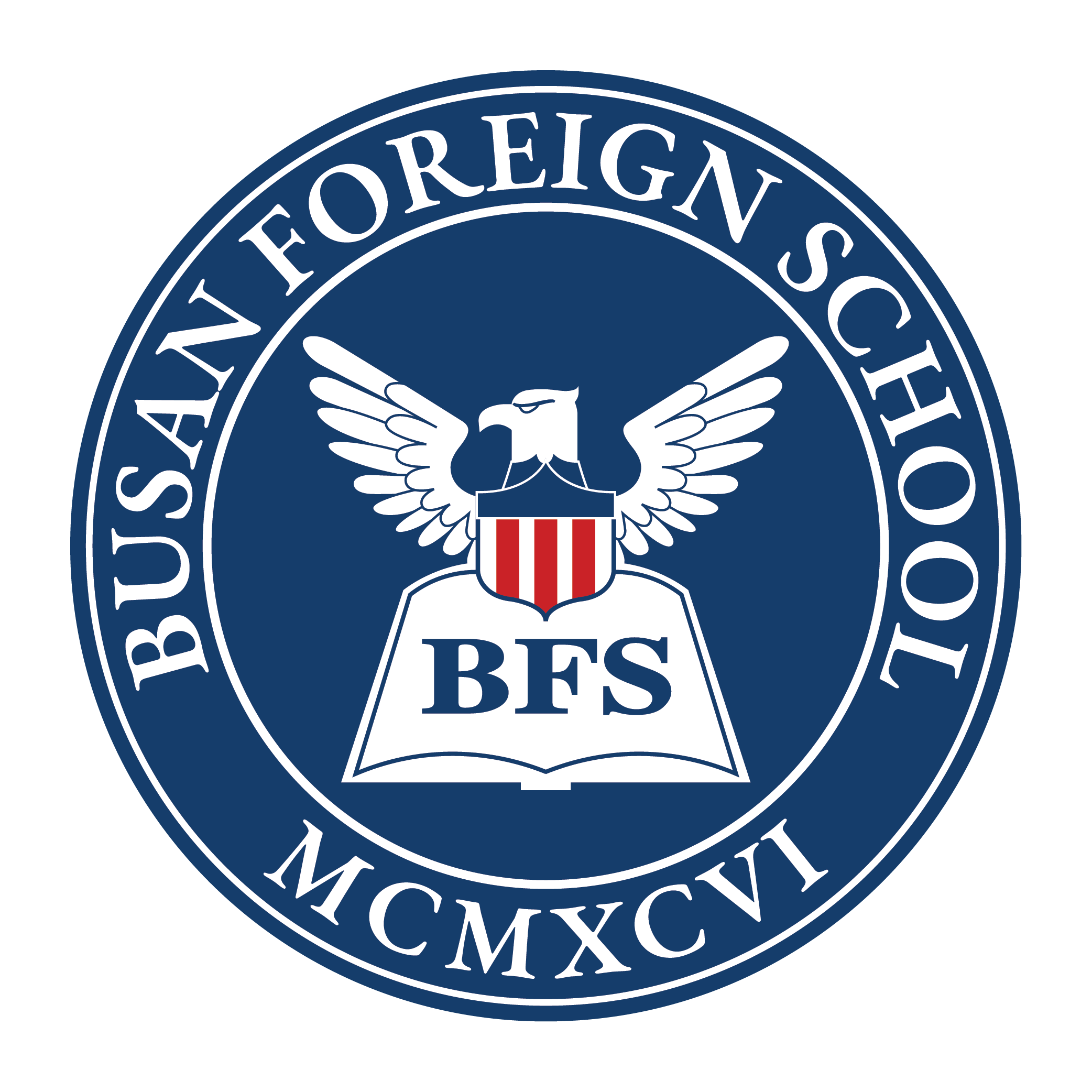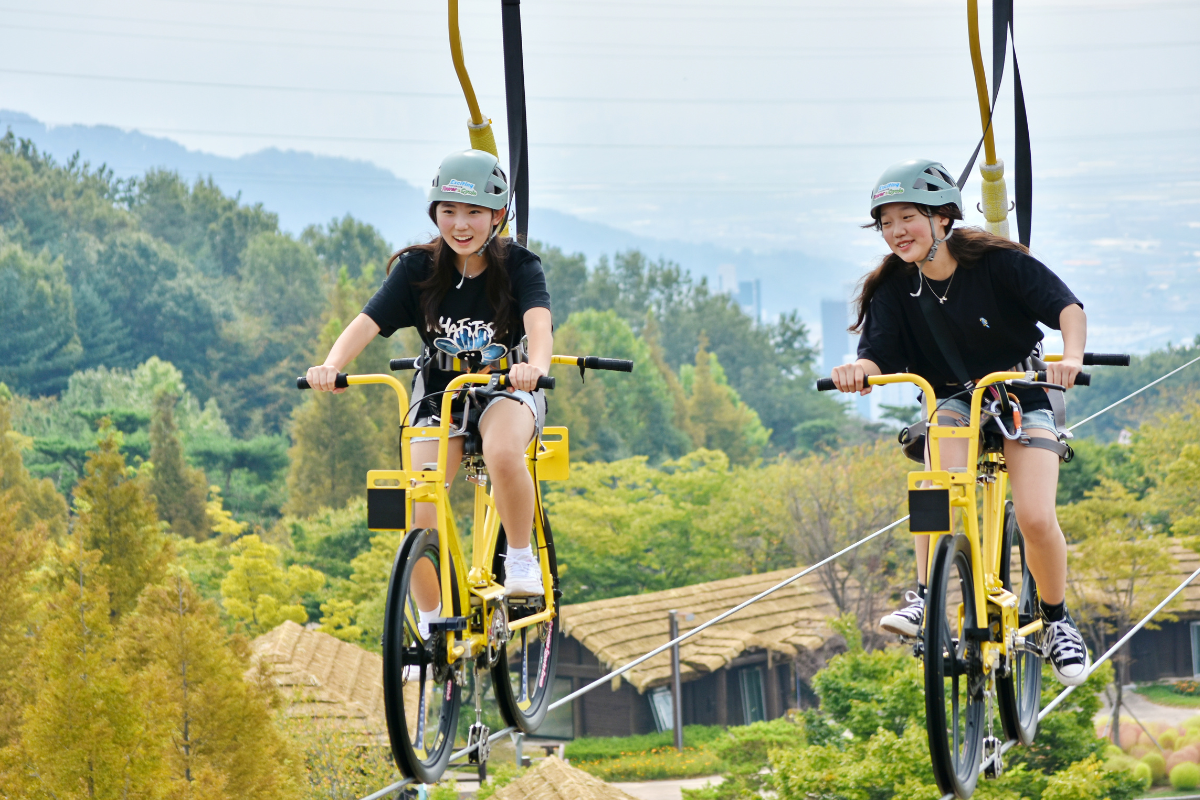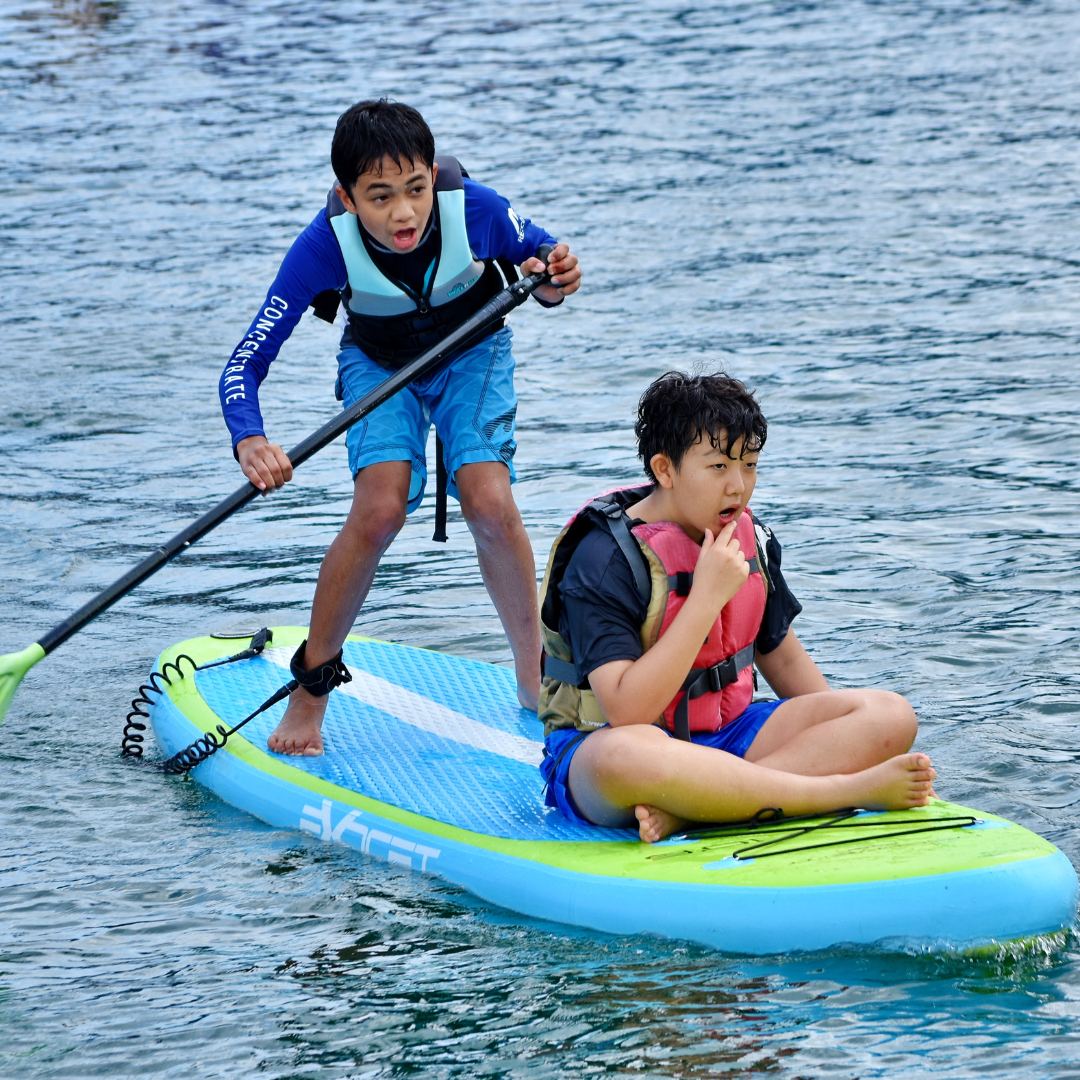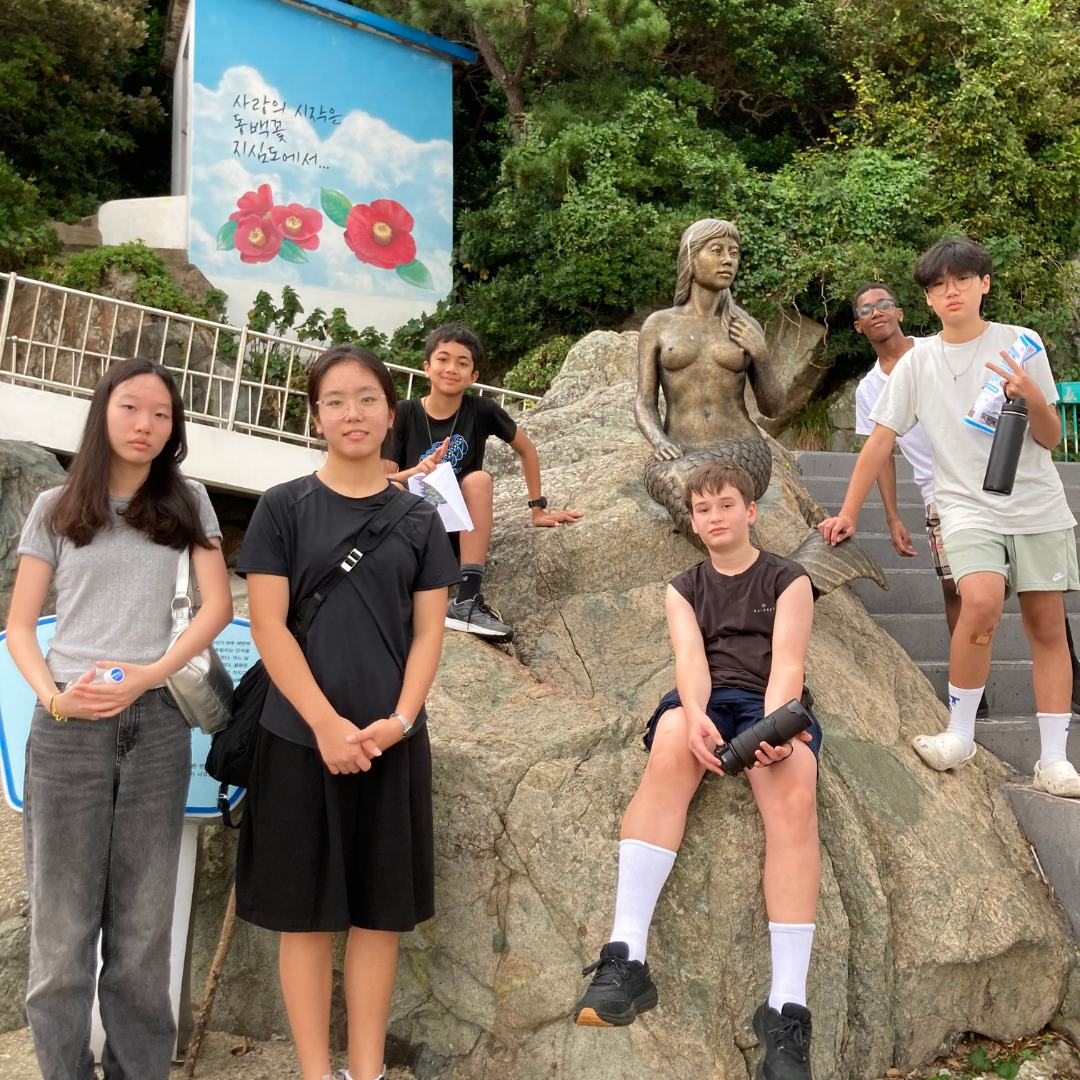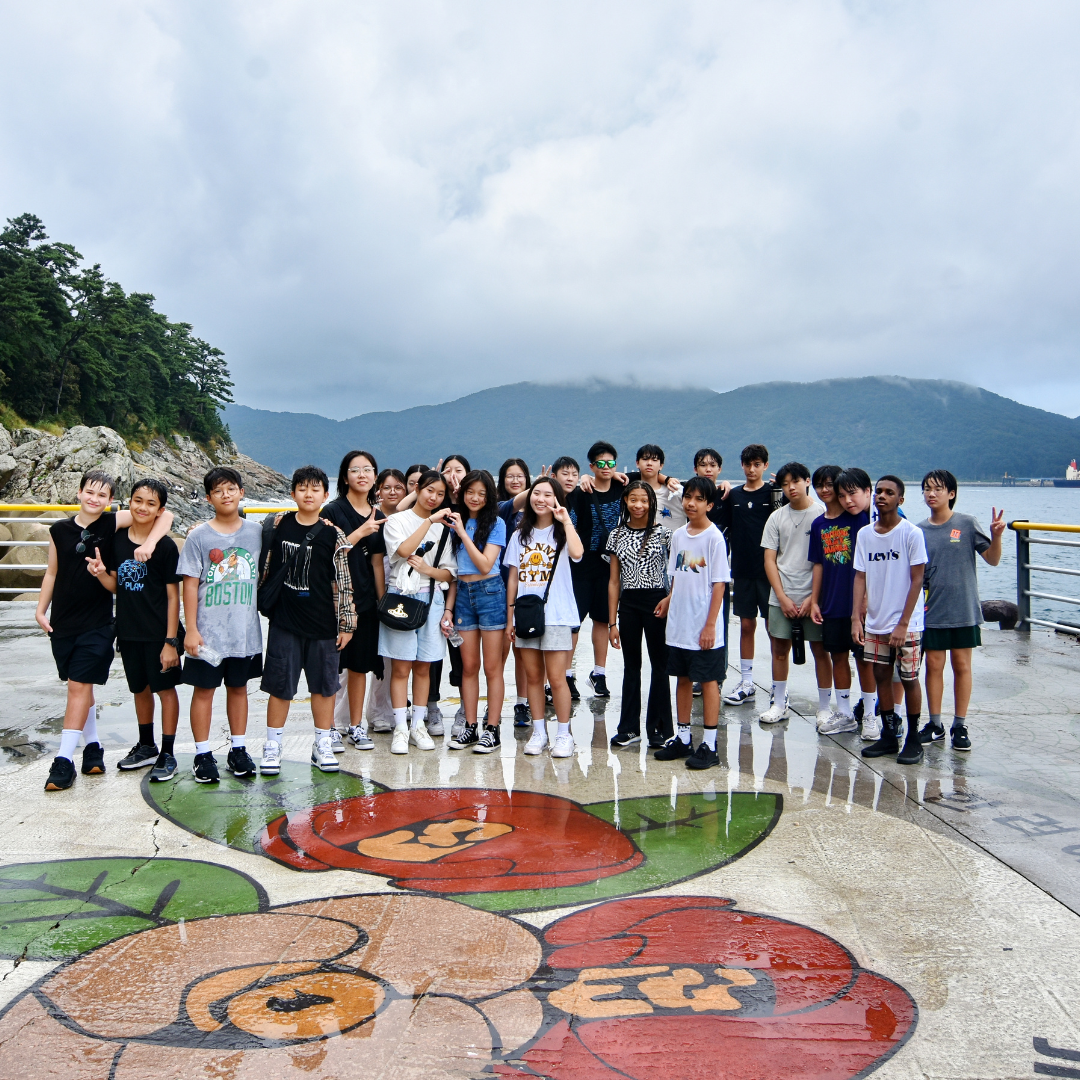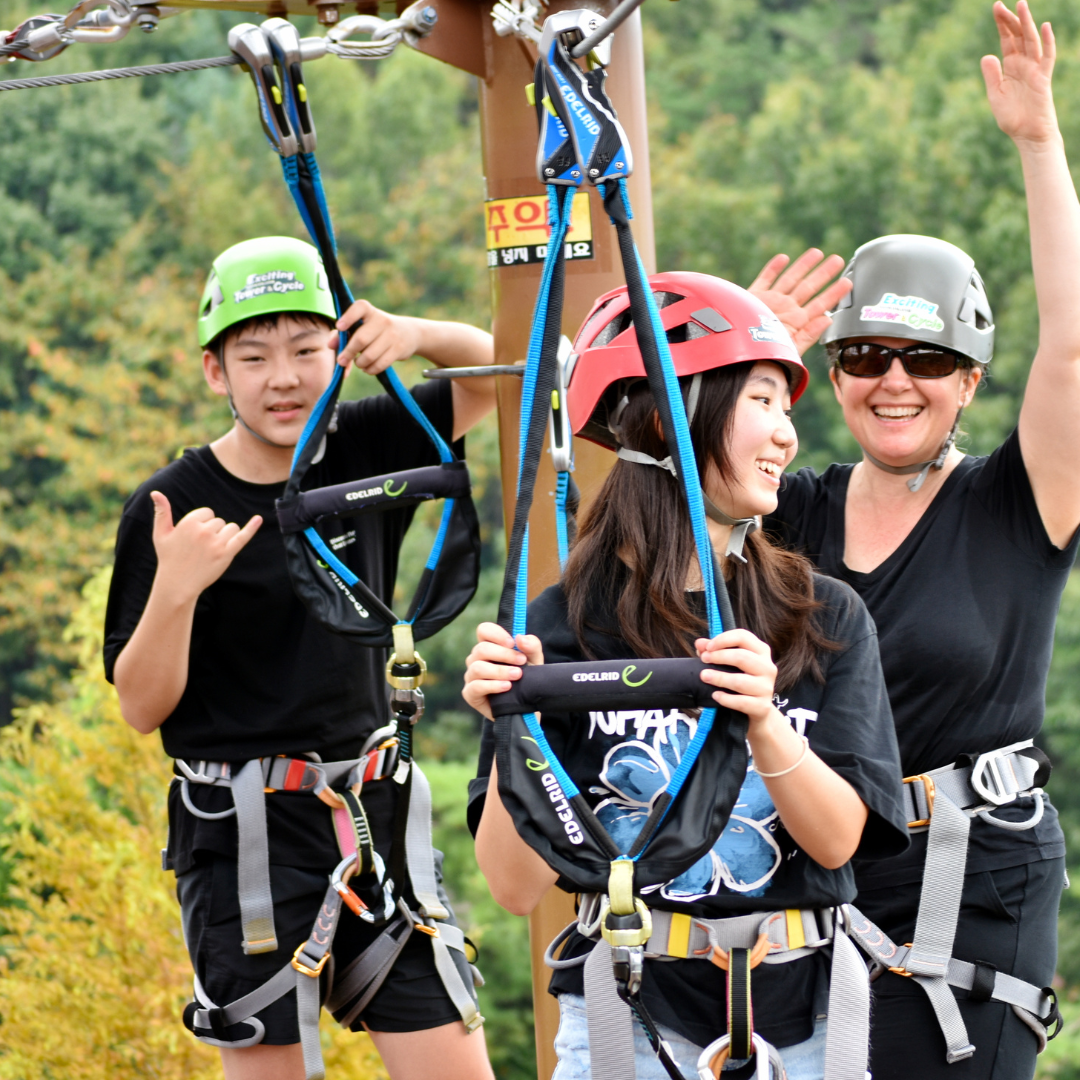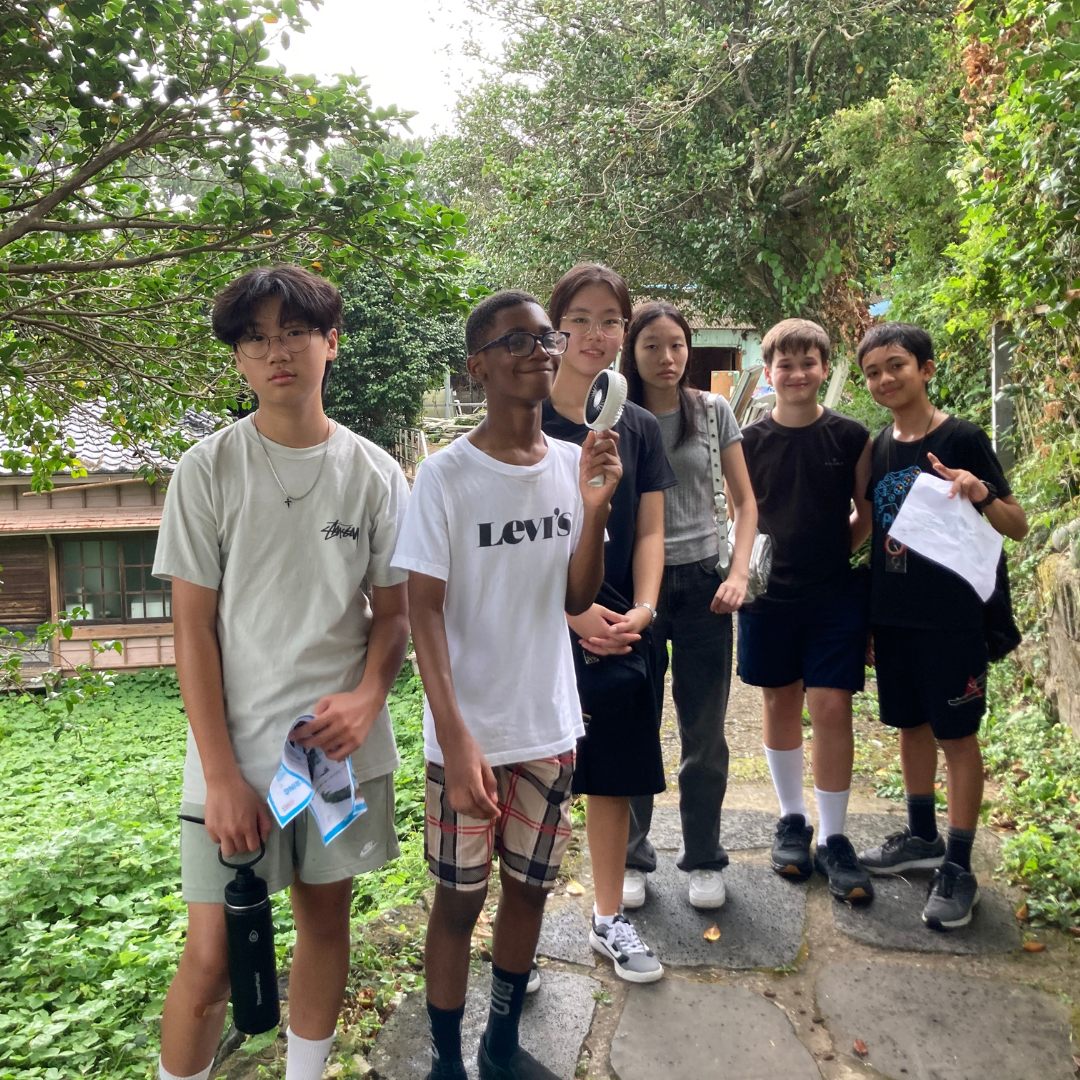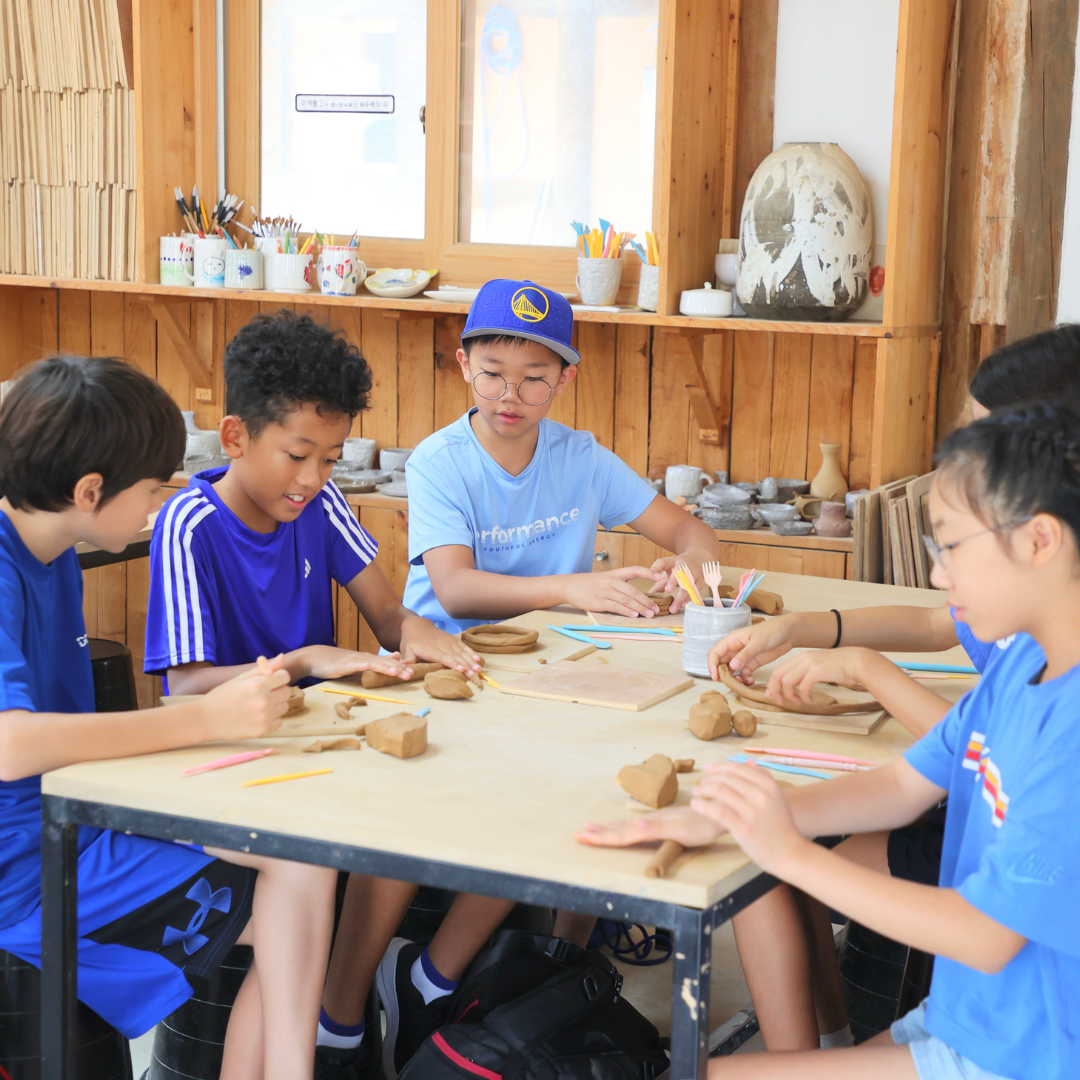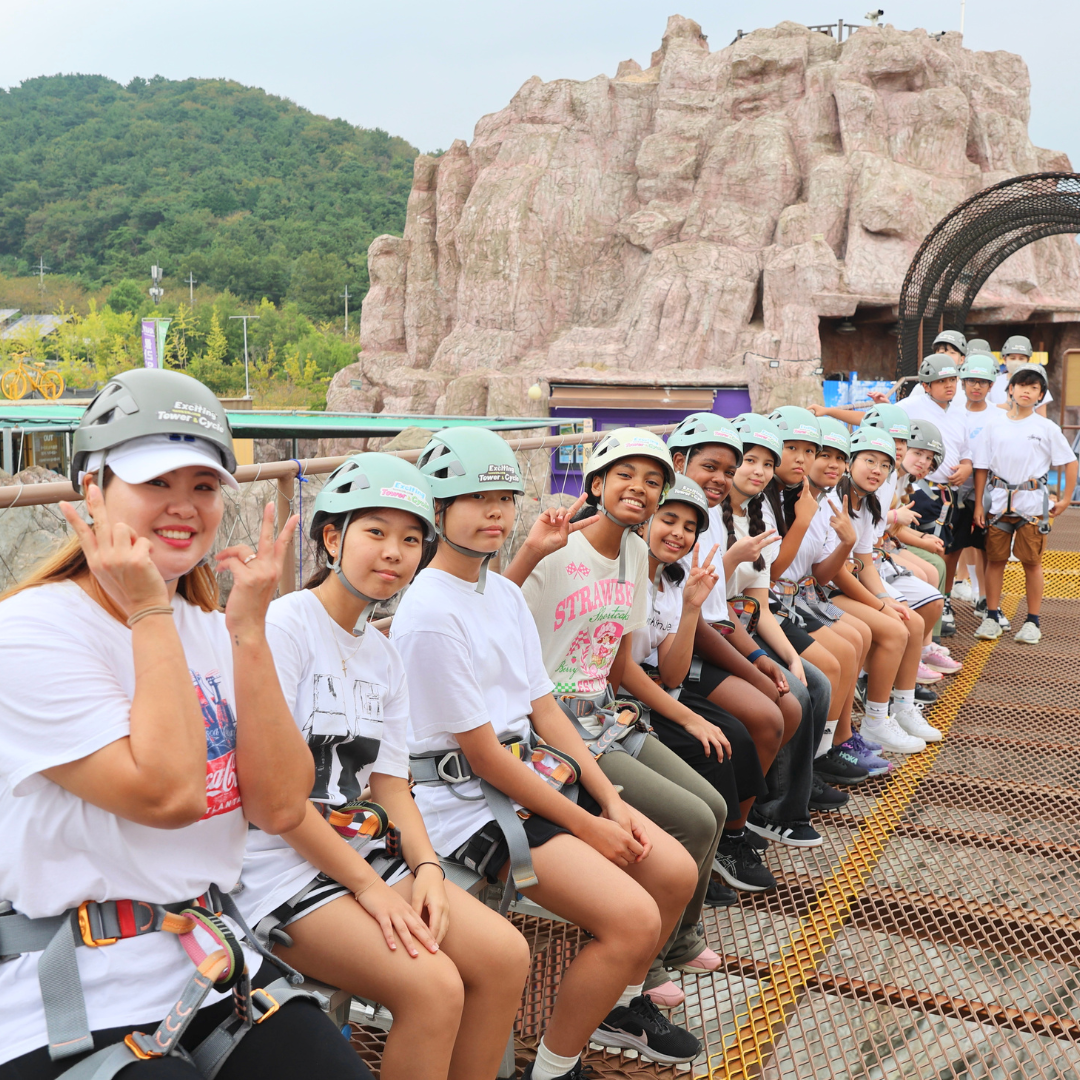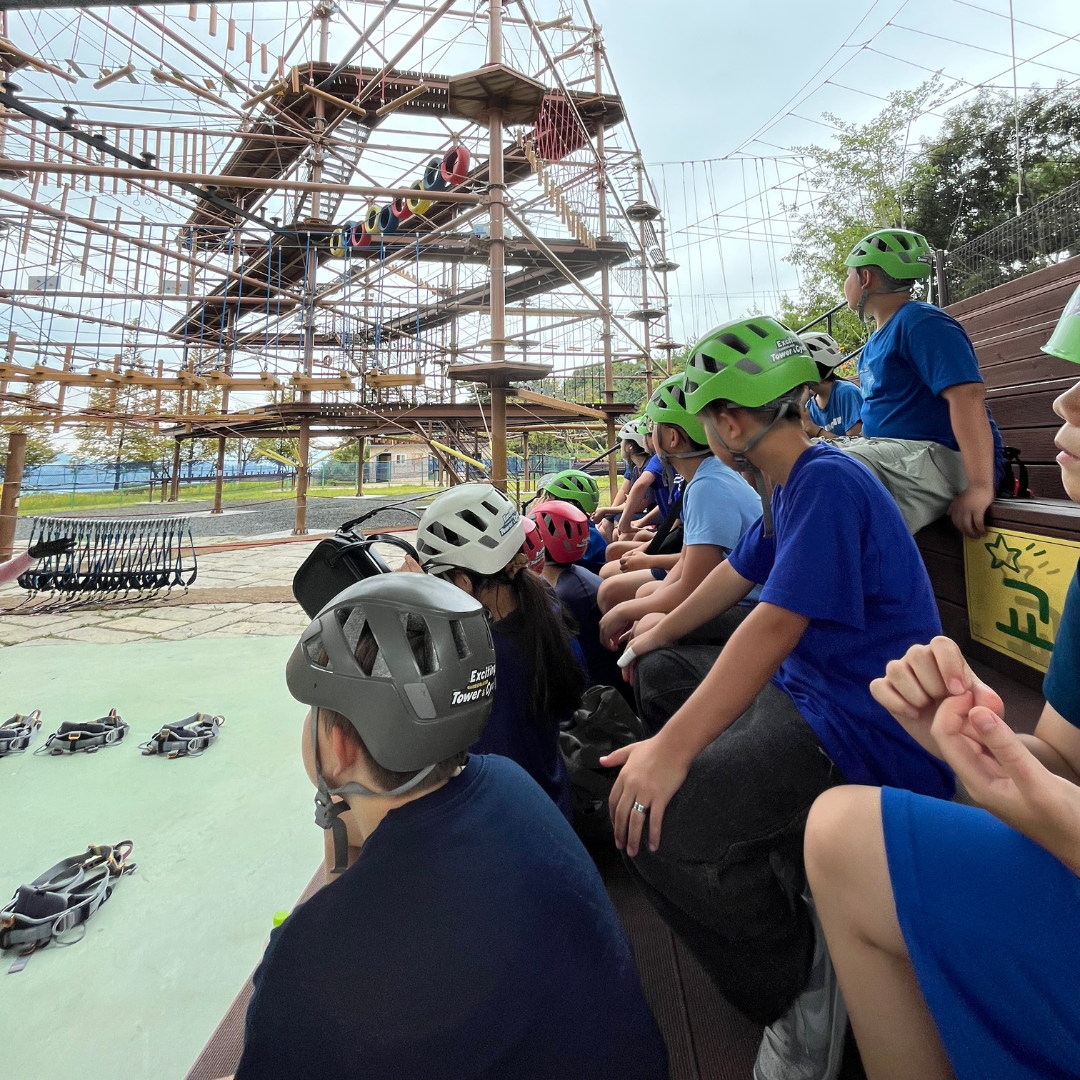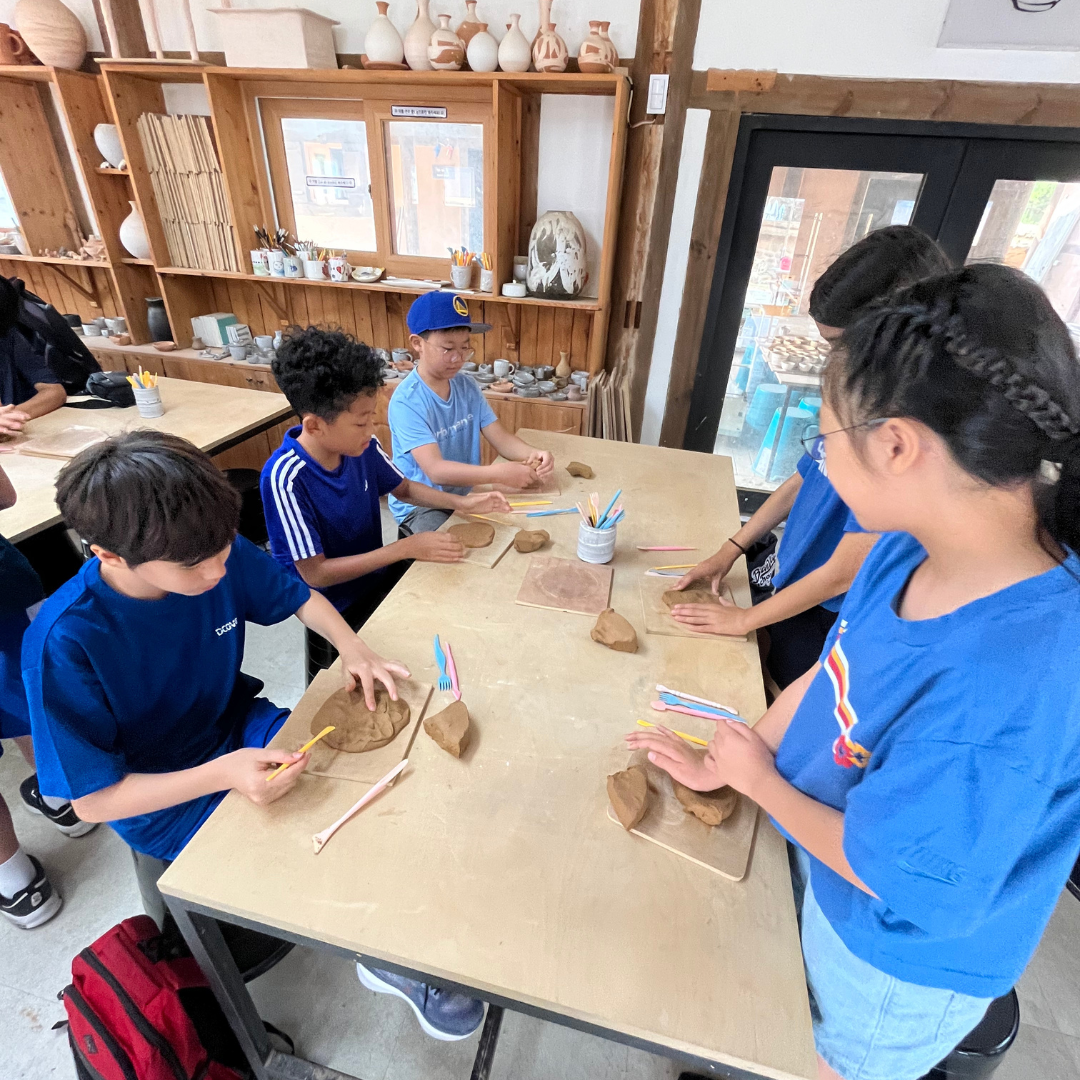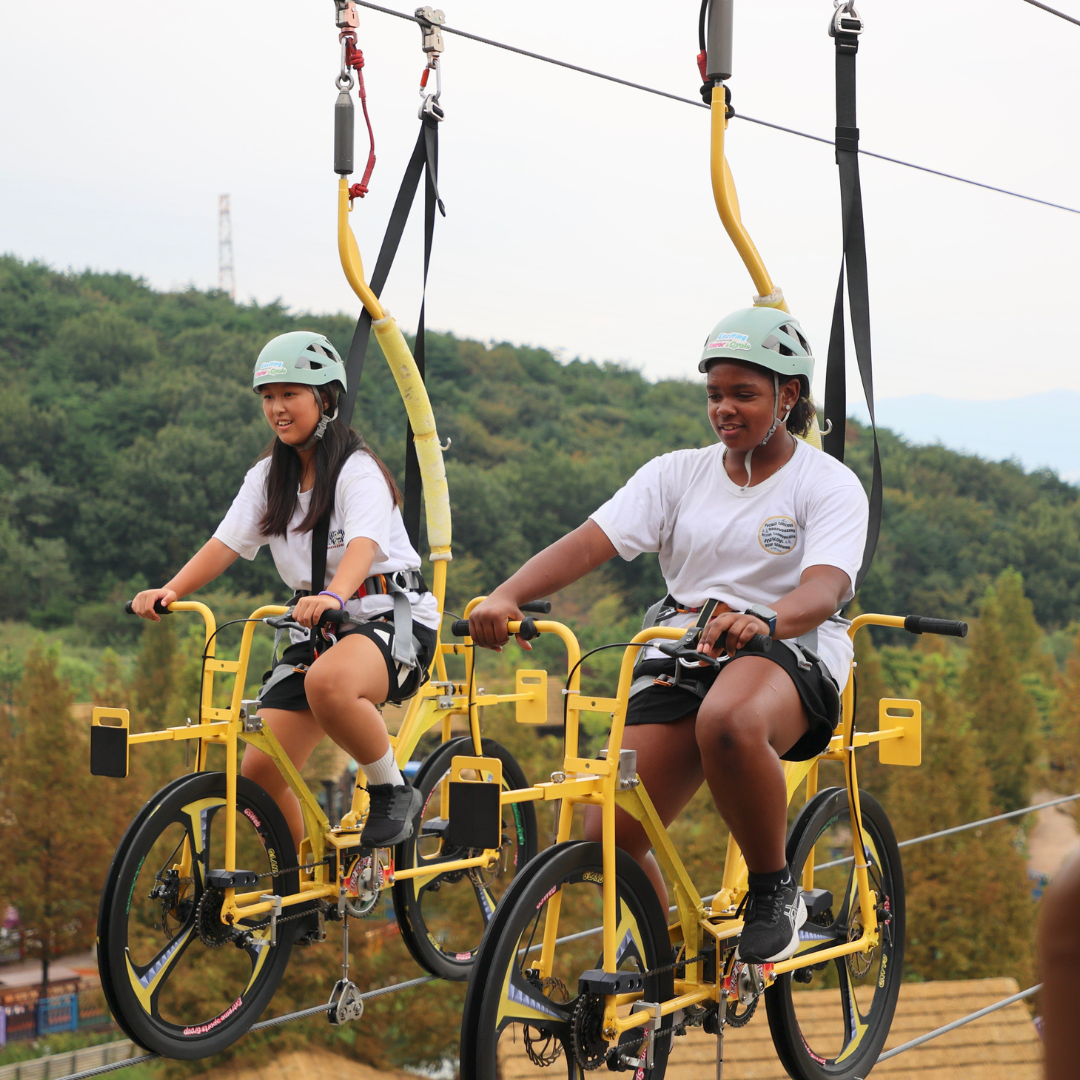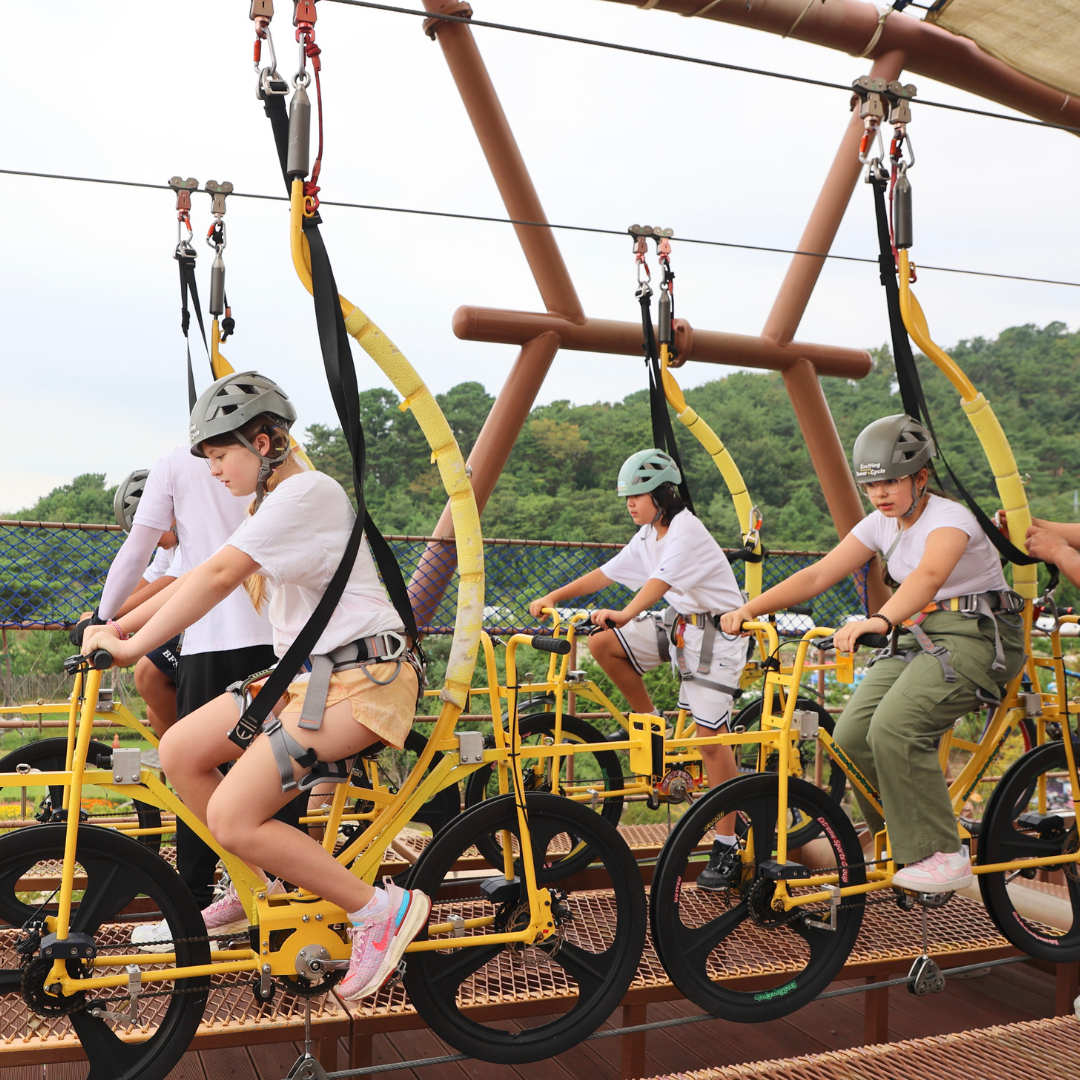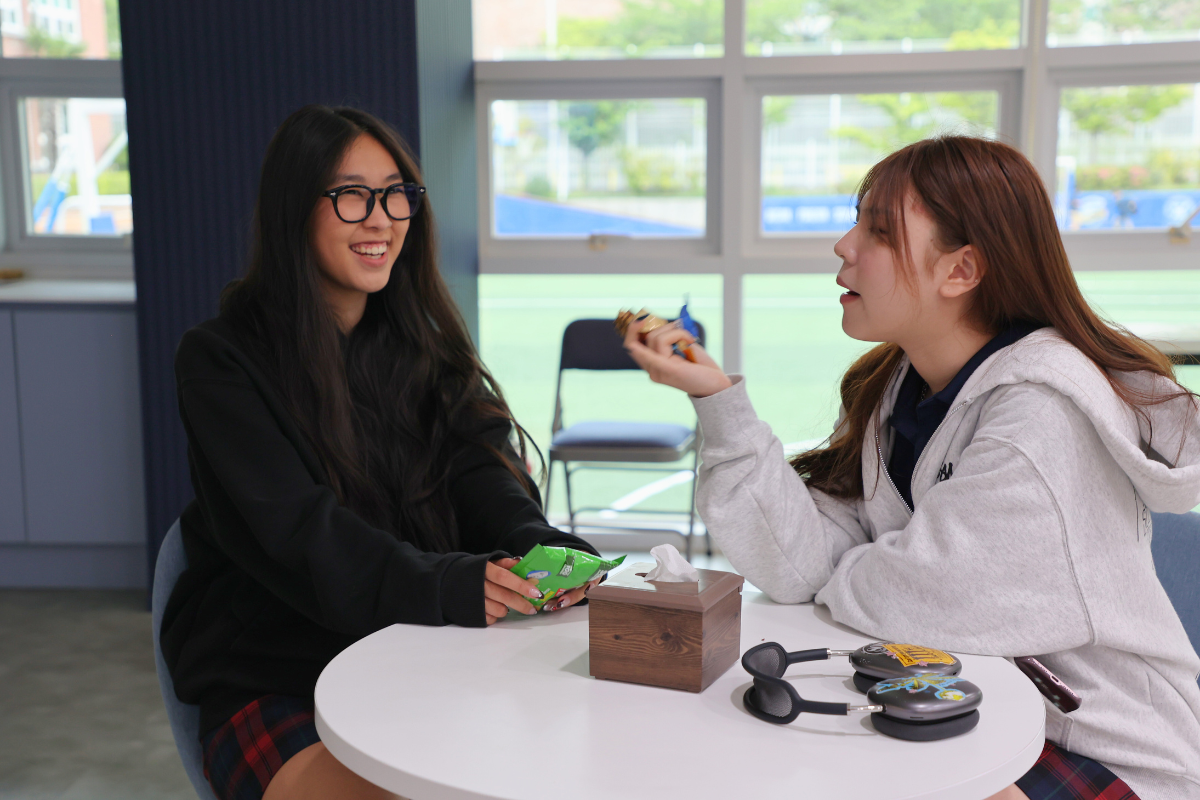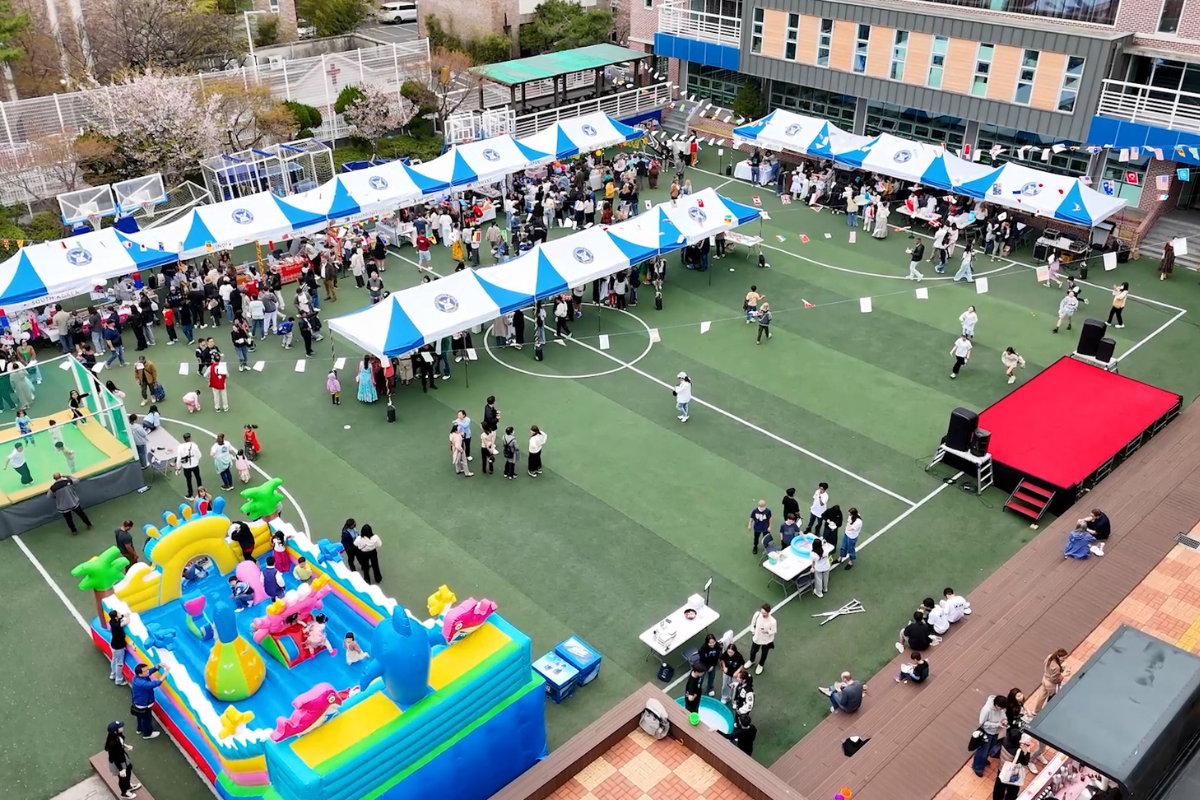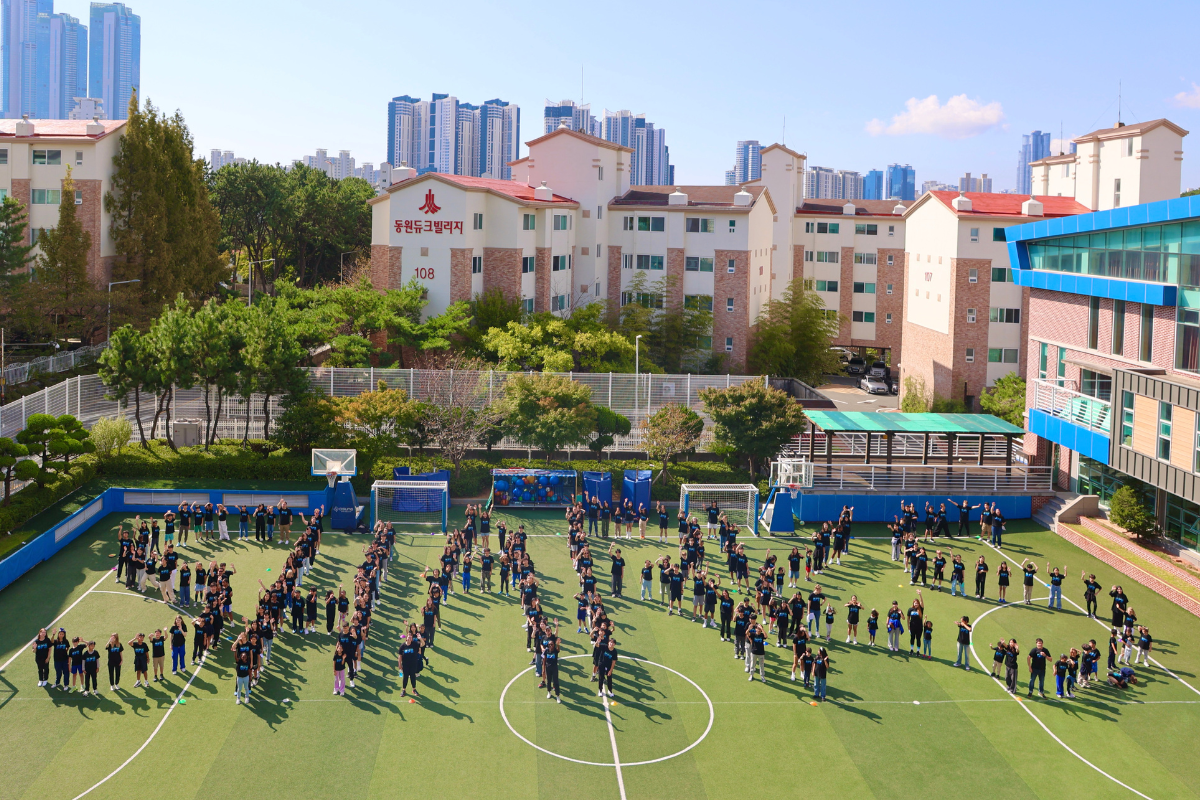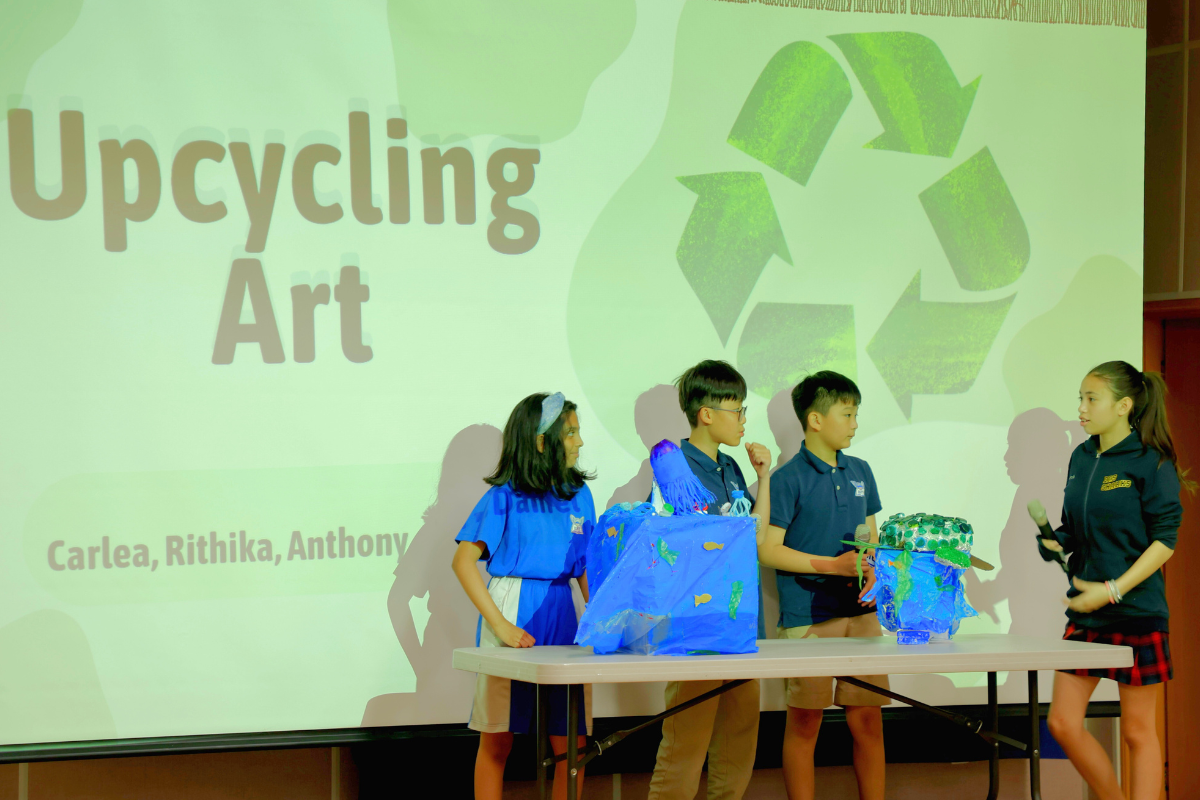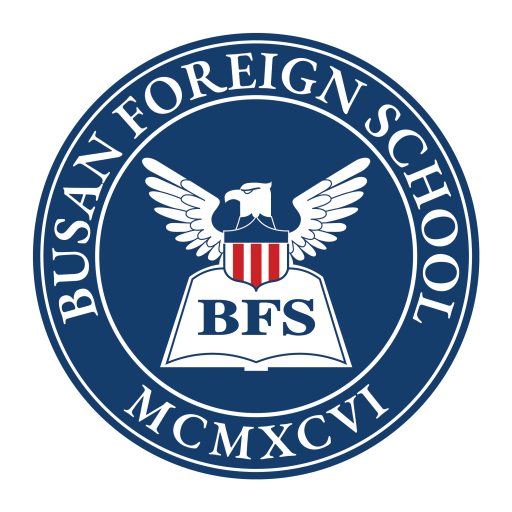Middle School students at Busan Foreign School traveled west on September 6 for Adventure Day 2024. Adventure Korea, a trusted expert in planning trips in Korea, coordinated the trip. Two buses left BFS at the start of the school day and drove to Gimhae Gaya Theme Park.
For the 8th-grade students, the day started at the Flying Cycle. Students noted that even though the Flying Cycle was scary initially, seeing the views up high became relaxing and peaceful. Leaving the heights, the students came down to earth and started the orienteering course, using compasses to find specific points along a route. Students noted that even though some groups got lost, the whole experience brought them closer together. After completing the orientation course, the students moved to an attraction billed as The Exciting Tower.
According to Jay, this tower lived up to its name. “We clipped in for safety, we solved all the problems, and made our way to the top, where we rang the bell, saw a great view, and won a prize!” Following a morning of adventure the students were ready for a picnic lunch and wound down in the afternoon by making pottery.
All of the grade 6 and 7 students in BFS enjoyed the same program at the Gaya Theme Park and returned excited and full of stories about their adventures. By 2:30 p.m., those students were back on the bus and headed to BFS to catch their transportation home. Ms. Cottier, the MS division lead who oversaw the trip, said, “Students were encouraging each other and pushing themselves out of their comfort zones. It was amazing to see!”
The 8th-grade students left Gimhae and continued their journey, heading south to the island of Geoje. It was off the bus, and onto the trekking trail for these adventurers before they made it to their hotel around 5:00 p.m. That night they enjoyed a delicious donkatsu meal at their hotel and then joined their classmates for a dance competition hosted by their advisors, Mr. Kuo and Ms. Brenneman. Eighth-grader Bobby noted that his classmates showed their rhythm and flexibility on the dance floor. Mr. Kuo expressed his admiration for their willingness to dance to any song that came up. The evening wound down with pool games and splashing fun.
On September 7, the 8th graders woke up to slightly gray skies in Geoje Their enthusiasm remained undiminished as they headed to the seaside to catch a ferry to Jisimdo Island just off the mainland. This island, overlooked by modernity, proved to be a challenging spot to complete a scavenger hunt. They remembered the incredible number of brightly colored tiny frogs that came out to enjoy the rain that fell on the hikers.
“Our group was invited to shelter with one of the few inhabitants of the island who shared with us about the island’s history,” said Marie, adding that their group and chaperone felt welcomed and safe in the shelter.
While some 8th graders sought shelter, others forged ahead, determined to complete their scavenger hunt and build connections with their classmates. One-eighth grader exclaimed that after the arduous journey, he was so happy to see his buddies that he hugged them.
The morning rain abated, and the students moved to a swimming area to try their skills at stand-up paddle boarding or kayaking. Others bobbed in the saltwater in their lifejackets. Several students noted that even though the changing facilities could have been better, the time in the water helped them build friendships and overcome their fears. BFS security guard, Mr. Moon accompanied the group to help monitor safety concerns throughout their adventure.
The class and their chaperones returned to BFS on Saturday, having created memories, grown closer as a class, and above all, having a full two days of outdoor adventures together. Ms. Brenneman summed up the experience saying “While there were some scrapes and the weather was not always sunny, the students showed their enthusiasm for adventure. They cheered each other on and built a good foundation for the year ahead.”
